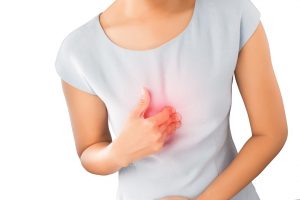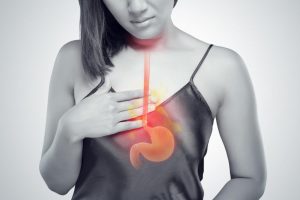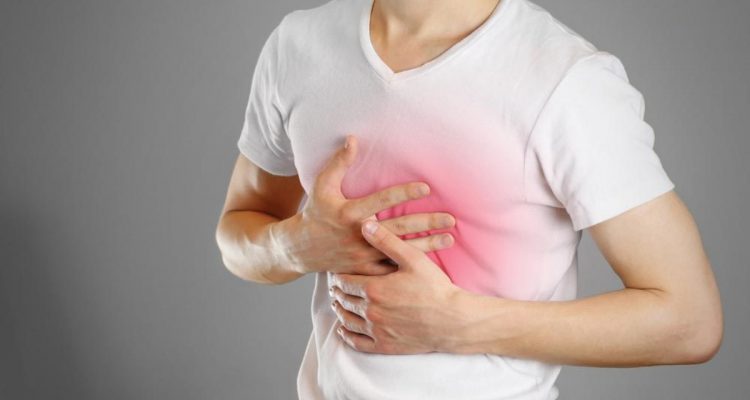Heartburn is so common that there is hardly anyone who has never experienced it. The causes of heartburn can be very different: from errors in nutrition to health-threatening changes in the body. Oddly enough, even in this age of high technology, many people continue to fight heartburn with primitive home methods, not realizing that they do more harm than good. If heartburn bothers you on a regular basis, you need to understand the causes and understand how best to act to improve your well-being.
Definition of disease
Heartburn, known in medical practice as reflux, is a burning sensation in the chest area. Quite often, it is accompanied by sour belching, and less often – bloating, nausea and other symptoms characteristic of diseases of the gastrointestinal tract.
What should and should not be done with heartburn?
If you experience heartburn, you need to reconsider your diet. You can not eat foods that can provoke a burning sensation in the esophagus – citrus fruits, tomatoes, onions and garlic, carbonated drinks, fast food, chocolate, spicy and fatty foods, acidic foods.
It’s important not to overeat. You should eat fractionally and in small portions.
After eating, you need to be in an upright position (sitting, standing) for half an hour. You can not go to bed right away, since in the supine position, the reflux of acid from the stomach into the esophagus is facilitated.
If a person suffers from heartburn, then he should not wear tight belts and tight clothes. Tight dresses or tight straps increase the pressure on the abdomen and increase the burning sensation in the chest.
Many people use baking soda for heartburn. If soda enters the stomach, it can cause a second attack of heartburn (soda, by neutralizing the acid, provokes the formation of carbon dioxide in the stomach, which stretches the organ and increases the pressure in it).
Heartburn symptoms
The most common manifestation of heartburn is a burning sensation that spreads from the epigastric region up the esophagus. With regular irritation of the esophageal mucosa, pain may radiate to the left side of the chest.
Additionally, there may be the following symptoms:
excessive salivation;
unpleasant taste in the mouth;
nausea;
Difficulty swallowing (caused by a spasm that occurs due to irritation of the walls of the esophagus);
bad breath.
Nutrition correction
If you are suffering from heartburn, you will have to give up some goodies. Diet correction will help get rid of persistent heartburn and avoid dangerous complications. Plus, by eliminating heartburn-causing foods (and most of them are harmful), you’ll feel healthier, more energized, and younger. It is recommended to limit the following foods:
baked goods;
chocolate and confectionery;
hot spices;
fried food;
citrus;
carbonated drinks;
juices;
tea and coffee;
alcohol.
You should not often eat cabbage, black bread and legumes (especially at one meal). These products indirectly cause heartburn: due to increased gas formation, they increase intra-abdominal pressure, which provokes reflux. Chocolate, cocoa or coffee also indirectly affect the occurrence of heartburn: they relax the lower esophageal sphincter, thereby increasing the likelihood of gastric acid entering the esophagus.
The basis of the diet should be boiled and steamed dishes. It is recommended to eat green vegetables, melons and bananas. Dishes such as mashed potatoes, oatmeal, boiled rice, and wholemeal bread help to cope well with heartburn.
Heartburn treatment
It is necessary to influence heartburn in a complex way: both nutritional correction and the use of pharmacological drugs are important.
Drug treatment
To eliminate heartburn, several groups of drugs are used.
1. Antacids https://en.wikipedia.org/wiki/Antacid. They are based on algeldrate and magnesium hydroxide. The use of antacids can reduce the excess acidity of gastric juice. The disadvantage of using these drugs is that many of them have a number of contraindications and can cause unwanted side effects (for example, stool retention). The choice of any remedy for heartburn should be discussed with a doctor, but in the case of antacids, this is especially true.
2. Proton pump inhibitors. Despite the complex definition, the function of these drugs is quite simple: they reduce the production of gastric juice. The most famous representatives of this group are omeprazole and famotidine.
3. Prokinetics. The drugs of this group normalize intestinal motility, but their main advantage in the treatment of heartburn is to increase the tone of the lower esophageal sphincter – this prevents reflux, and therefore the occurrence of unpleasant sensations behind the breastbone. There are many commercial preparations based on domperidone, metoclopramide and itopride.
